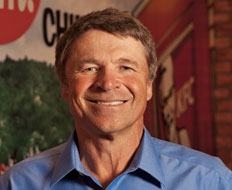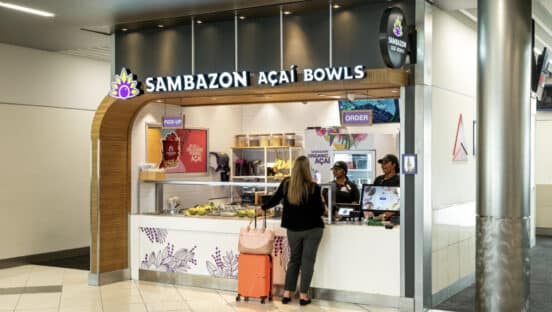Quick-serve executives have a wide range of leadership strategies. While some believe that leading from behind the doors of their corner office is a suitable way to grow a business, others have found that the only path to success is leading by example and inspiring employees to be the best they can be.
For an example of the latter, look no farther than the CEO of the largest restaurant company in the world.
“The most important thing you can do as a leader is create an environment where everyone knows that what they do makes a difference,” says David Novak, chairman and CEO of Yum! Brands, parent company of Pizza Hut, Taco Bell, and KFC.
In his latest book, Taking People With You: The Only Way to Make BIG Things Happen, Novak reveals that the fundamentals of communication, encouragement, and recognition have helped him lead Yum to big success. “What we’re trying to do is create a famous recognition culture, where people are appreciated and their results are celebrated,” Novak says. He believes that strong leaders “make sure that people are treated with respect, and the job they do is given dignity and value.”
Jeffrey O’Neill, president and CEO of Lakewood, Colorado–based Einstein Noah Restaurant Group (enrg) and a former employee at Yum, has taken Novak’s words to heart in his current position. Based on Novak’s model, he says, he keeps actively involved in the development of ENRG’s people and says one of his top priorities is to inspire his team members to reach their full potential.
O’Neill was a participant in a “Taking People With You” course Novak taught several years ago at Yum. He says one thing that stuck with him from that time was Novak’s hands-on involvement.
“This wasn’t a flyby,” O’Neill says. “He was fully engaged in these meetings for four days, with a million other priorities going on, no doubt. It really spoke to me, [his] commitment.”
That kind of commitment is crucial to developing a company’s culture, says John Baldoni, president of Baldoni Consulting, an executive coaching and leadership development firm.
“It’s the idea that employees matter,” Baldoni says. “We value them as contributors, as resources, and they are assets for our growth and our development.” He encourages company executives to set clear expectations, to inspire trust by treating people fairly, and to lead by example.
Engaging employees in the organization’s goals is often the first step toward success, Novak says, because businesses with employees who play it safe grow complacent and don’t grow. If the company is going to aim high, he says, then employees should be encouraged to do the same.
“You want to have something that’s significant enough that it forces you to extend beyond what you might be capable of,” he says. “But you have to have a belief that you can possibly get it done.”
Preston Atkinson is CEO of San Antonio–based Whataburger. Though he’s not a Novak disciple like O’Neill, Atkinson says his leadership style reflects employee-centric core values.
“I’m transparent, focused, and a long-term planner,” Atkinson says. “I focus on the people in the organization.” He says he’s committed to making the company a good place to work for a long period of time, something he’s apparently been successful with; Whataburger was ranked among the top 25 companies for career opportunities in a recent review from Glassdoor, an organization that analyzes the job market.
Atkinson describes Whataburger’s internal communication style as “deliberate,” saying the company ensures goals are fully distributed and that employees at all levels of the organization are engaged, not just the senior management.
“We try to show them what success looks like, and try to help them with ways to get there,” Atkinson says. “It’s powerful [to have] great individuals who get up every morning and want to achieve success. My job is to try to inspire that flame within them.”
Quarterly planning sessions at Whataburger are used to ask employees for feedback, Atkinson says, and the team looks for ways to solve any problems that are holding people back.
Inspiring passion and excitement across a company’s employee population often starts with treating everyone with respect and dignity, Baldoni says.
“Make them know that they matter,” he says. “You want people to have a sense of initiative and know they can take care of customers, not in their own way but in keeping with the culture of the organization.”
He says recognition programs that are timely and meaningful usually spark the greatest success. “When people do something well, you recognize them in an immediate fashion,” he says.
Developing a culture of recognition is fundamental to Novak’s approach. “Great people will work where they feel appreciated and recognized,” he says. “Make sure you recognize all the behaviors that are consistent with the culture that you want to have.”
Those behaviors should even include innovation and new ideas, Novak says, adding that leaders should try to create a “safe haven” in the company where all kinds of people can feel comfortable proposing ideas and giving feedback.
Remembering that organizations are a sum of all of their parts is at the core of Atkinson’s approach to leadership. He says it’s the people of Whataburger, not his own title, that get great work done.
“It’s them that is making all of this possible,” he says.







